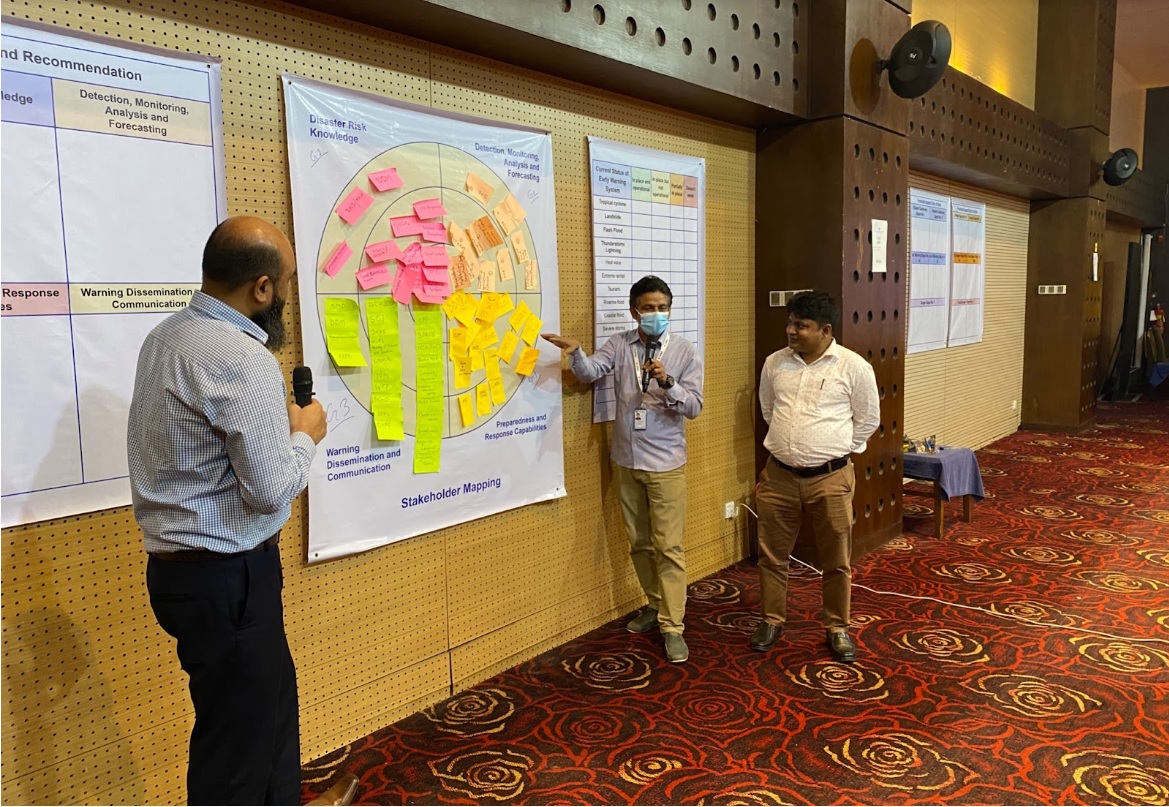The workshop aimed to improve understanding of the capacities of various actors, gaps, and the scope of improvement of four components of the Multi-hazard Early Warning System including risk knowledge, detection, monitoring, and forecasting, communication and dissemination of warnings, and preparedness and response capability. The participants took part in multiple participatory group work sessions, including 'Stakeholder Mapping,' 'Status and Gaps in Multi-Hazard Early Warning System,' and 'Cyclone Early Action Matrix Development.' During the consultation, they shared their opinions on improving the Multi-Hazard Early Warning System in Cox's Bazar and strengthening coordination and collaboration between the key stakeholders.
Md. Atiqul Haq, Director General of the Department of Disaster Management (DDM), presided over the event as the Chief Guest, along with other senior officials from DDM. He said that reaching the last-mile users of the early warning system on time and choosing the best way to make the process sustainable should be the key priorities for this initiative. Additional Deputy Commissioner (ADC) from the district administration, local-level representatives from the relevant government departments, and humanitarian agencies, including ISCG, WFP, UNHCR, IFRC, Save the Children, UNDP, etc., also participated in the workshop.


The workshop is a part of the ‘Strengthening Last Mile Communications’ program, which is being implemented in four countries across the South Asia region including Bangladesh, Nepal, Pakistan, and Sri Lanka. It aims to work on climate resilience through the effective dissemination of timely early warning information among last-mile users for improved disaster preparedness and risk mitigation. The initiative is funded by the United States Agency for International Development (USAID) through the University Corporation for Atmospheric Research (UCAR) and is implemented by RIMES.